There are mainly two ways by which companies generally reward its shareholders – Share Buyback and Cash Dividends. In recent times, many big companies like TCS, HCL, Infosys and Wipro have announced buybacks. Learning about the stock market with our course at ELearnmarkets will help you in understanding about these corporate actions. But there is always a question that prevails amongst investors as to which alternative is better?
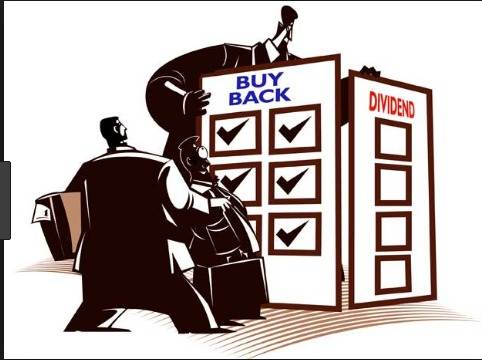
So before we jump upon a conclusion, let’s review the basics of both of these terms:
DIVIDENDS
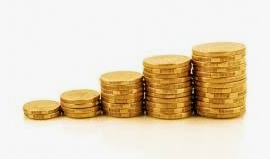
Dividends are like a bonus to shareholders, which is distributed as a share of company’s after tax profits on the quarterly or annual basis. For example, if a company pays a cash dividend of 1 rupee per share, a shareholder with 1000 shares would receive 1000 rupees in cash. But, if a company is paying a 10 percent stock dividend then a shareholder who has 1000 shares, will have receive 100 additional shares after the stock dividend.
Dividends are not guaranteed. It all depends upon the board of directors of a company. Unlike, bonds, the board of directors have the power to reduce or cancel dividends at any time.
Why do people invest in dividend stocks?
Even though the dividends are not guaranteed, yet many people still rely on the dividends as a steady source of income generation. Specially, Retirees who look for steady source of income create a schedule to receive dividend check on the annual or quarterly basis, however, the young investors who may not require the income now – can put those dividends checks by reinvesting them for portfolio growth.
Why do companies pay dividends?
Paying timely dividends indicates the financial health of a company and its overall performance in its sector. Companies having excess cash reserve generally pay dividends to attract their investor’s interest in the stock. Also, Dividends received by shareholders are taxed differently and hence becomes important from a tax planning point of view.
SHARE BUYBACK
Share buyback is a process by which companies reduces its number of shares outstanding in the marketplace, by purchasing its own shares at a premium on the current market price. This premium is a way by which companies reward its shareholders, which incentivizes them to take part in the buyback process. To better understand this, let’s take an example of a company where the stock is quoting between 900 and 950 rupees but the buyback price has been set to Rs 1150 leaving a clear margin for its shareholders.
Company takes this step when it feels like shares are undervalued and also to increase the value of remaining shares available by reducing the supply. Another reason for the buyback is compensation. It has been seen that companies often reward their management and employees with stock rewards and stock options. By purchasing their own shares, companies issue shares to their management and employees. This action is also taken by the company to increase earnings per share (EPS), cash-flow-per-share and also improves performance measures like return on equity (ROE).
Why buyback?
Buybacks are a more tax-efficient way of returning capital to shareholders because they do not need to incur any additional tax on the buyback sale process. Tax is levied only on the actual sale of shares, whereas dividends attract tax at the time of filing return. Also in many countries, dividend payments attract Dividend Distribution Tax (DDT).
Advantages of buybacks
- It prevents a decline in the value of a share by reducing the supply of the Shares in the market and also due to the reduction in outstanding shares the Earnings per Share (EPS) of the company improves. A higher EPS would lead to lower P/E ratio, which is looked at positively by the stock market.
- It is also used strategically by management, to show its confidence in the company and to send a message that the stock is undervalued.
- Helps the company use its excess cash lying idle due to lack of opportunities.
- If promoters do not participate in the buyback process, it increases their holdings thus preventing potential takeover by rivals and also improves the decision-making process as there are fewer shares owned by the public.
- When company pays dividend, all shareholders receive cash as per their shareholding whether they need or not. However in case of a share buyback, it’s upon the investors to decide, whether they want to take part in the process or not.
Disadvantages of buybacks
- Buyback may indicate lack of profitable opportunities for the company to invest in, which may send a bad signal to long term investors looking for capital appreciation.
- The entire process is time-consuming and requires a lot of disclosures to the stock exchanges and approvals from regulatory bodies. It also becomes an expensive affair for the company as it involves hiring investment bankers etc.
An Example of Dividend versus Buyback
Let’s use the example of a company that has 50 lacs shares outstanding. The shares are trading at say Rs 200 per share, giving a market capitalization of 10,000 lacs. Assume that Company had revenues of Rs 10,000 lacs in Year 1 and a net income margin of 10%, for net income (or after-tax profit) of Rs 1000 lacs or Rs 20 per share. This means that the stock is trading at a price-to-earnings multiple (P/E) of 10 (in other words, 200 / 20 = 10).
Suppose that Company wants to distribute its entire net income of Rs 1000 lacs to its shareholders. This could be done in one of two way as follows:
Scenario 1: Dividend. Company pays out Rs 1000 lacs as dividends, which amounts to Rs 20 per share. Assume you are a shareholder and you own 1,000 shares of the company purchased at Rs 200 a share.
You therefore receive (1,000 shares x Rs 20/share) or Rs 20,000 as the special dividend. Since dividend less than 10 lacs is not taxable in the hands of individual shareholders, hence your return is (20000/2,00,000 = 10%) 10%.
Scenario 2: Buyback. Company spends the Rs 1000 lacs buying back its shares. Although a company will execute its share buyback over a period of many months and at different prices, to keep things simple, we assume that Company buys back at a price of Rs 200 per share, which amounts to 5 lacs shares bought back or repurchased. This reduces its share count from 50 lacs shares to 45 lacs shares.
The 1,000 shares of Company that you purchased at Rs 200 will now be worth more over time because the reduced share recount will increase the value of the shares.
Assume that in Year 2, the company’s revenues and net income are unchanged from Year 1 at Rs 10,000 lacs and Rs 1,000 lacs respectively.
However, because the number of shares outstanding is now down to 45 lacs, earnings-per-share would be Rs 22.22 per share instead of Rs 20 per share.
If the stock trades at an unchanged price-to-earnings ratio of 10, shares should now be trading at:
Rs 222.22 (Rs 22.22 x 10) instead of Rs 200 per share.
What if you sold your shares at Rs 222.22 after holding them for just over a year. You would have gains of Rs 22,220 (i.e., (Rs222.22 – Rs200.00) x 1,000 shares = Rs22,220) and your effective return would be 11.11%(22220/200000=11.11%).
Which is better: Dividends or Buybacks? – Final Thoughts
After discussing in detail we can conclude that, both dividend payouts and buybacks are seen as indication of a company who does not have any productive investment opportunities available in the market.
Corporate buybacks may be regarded as a tax-efficient way of rewarding shareholders but timing is very critical for buybacks to be effective.
Buying back its own shares could be a sign of confidence of a company in its prospects but if the shares subsequently slide, then that confidence could be misplaced.
Also dividend payouts do not have the flexibility that share buybacks have, as investors can choose the timing of their share sale and tax payment.
In dividend payouts, the investor has to pay taxes on them while filing tax returns.
But, it doesn’t mean that dividends payouts are a bad way of rewarding shareholders. In fact, there are some areas where the dividends are better than buybacks.
For starters, dividends offer complete transparency as information about the dividend payments are easily available through financial websites and corporate investor relations sites however the info on buybacks are very difficult to find.
BOTTOMLINE
If one is looking for building wealth over time then share buybacks could be better than dividend payouts because of the beneficial effect on the EPS from a reduced share amount. Nevertheless, both are very efficient ways of rewarding shareholders where a company can choose either one which is best suited for its shareholders and itself.


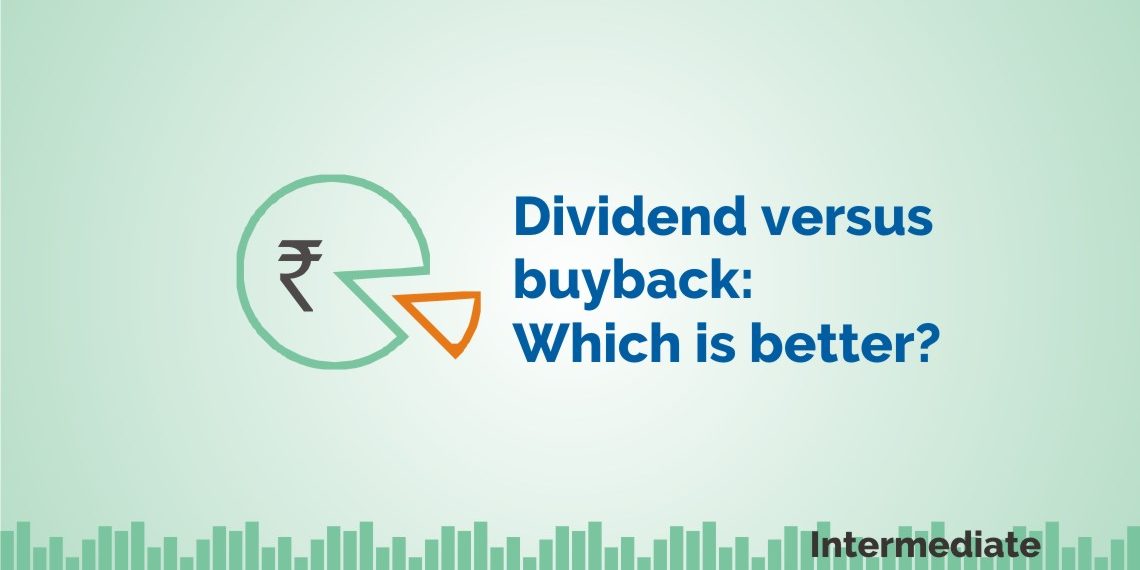

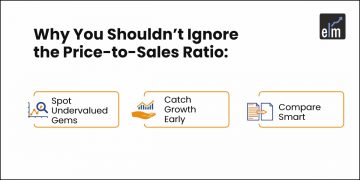
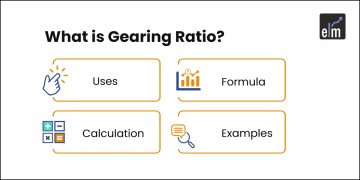
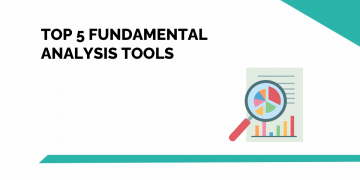
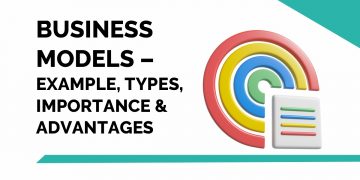

Outstanding learning
Hi Bidyadhar,
Thank you for reading!
You can read more blogs on Fundamental Analysis here.
Keep Reading!
Hi there, just became aware of your blog through Google, and found that it’s truly informative. I’m gonna watch out for brussels. I will appreciate if you continue this in future. Lots of people will be benefited from your writing. Cheers!